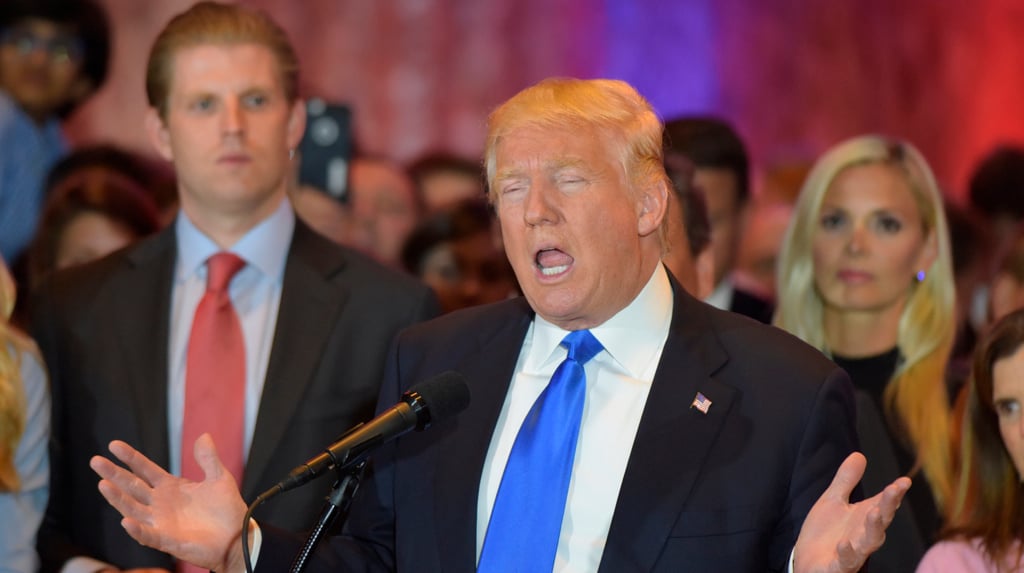On Wednesday morning, the White House sent out an email featuring news clips that offer “Praise For President Trump’s Bold Action.” It’s the kind of message a campaign might send to its press list as a way to nudge reporters toward praising it—in other words, exactly the kind of email that any political reporter should see at the top of his or her inbox every morning.
The email starts out with a mainstream source—ABC News’s Jonathan Karl, to be precise—describing President Trump’s first few days in office as having a “incredible pace.” An article from the Atlantic asking if Trump’s success in getting his cabinet nominees confirmed by the Senate means he’s off to a “successful start” gets clipped for the email’s sub-headline. The rest of the email, though, is full of editorials from center- and right-leaning editorial boards like USA Today‘s and the Wall Street Journal‘s praising the new President’s executive orders on oil pipelines.
But many of the remaining clips come from an expected claque of Trump stooges: Sean Hannity, Senator Ted Cruz, the Washington Examiner, and the Daily Signal, the Trump-aligned Heritage Foundation’s online magazine.
If this email had come from a campaign or GOP political-action committee, no one would pay it any heed. But with an official White House email address in the “from” line, alarms were sounded:
I’ve never seen the White House email out something like this. Anybody else? (I know the campaign did.) pic.twitter.com/qSQzaHYF3C
— Mark Berman (@markberman) January 25, 2017
So the White House just released this email pic.twitter.com/7nzdfeHQLR
— Mark Murray (@mmurraypolitics) January 25, 2017
This is the kind of email you’d usually see from a campaign. I’ve never seen anything like it from the official White House press office. https://t.co/ahJ4cW9Suv
— Bradd Jaffy (@BraddJaffy) January 25, 2017
Some might call it Propaganda. https://t.co/wkaDywREcw
— Katy Tur (@KatyTurNBC) January 25, 2017
It might be new for the White House to tout its positive coverage, but it’s not new for the White House to behave like a campaign; that’s a mentality that goes back decades. In December 1976, Pat Caddell, a pollster for Jimmy Carter who has over the years drifted rightward—he now works with Breitbart—advised Carter that “governing with public approval requires a continuing political campaign.”
The permanent-campaign mentality emerged again in the Clinton Administration, which was challenged from its first day by congressional Republicans seeking to oust Bill Clinton. That’s how former Labor Secretary Robert Reich remembered it in a 2003 essay in the American Prospect, writing:
Bill Clinton’s Republican opponents sought to reverse the election of 1992 almost as soon as Clinton came to Washington. Their carefully contrived plot, surveyed in Sidney Blumenthal’s recent best-selling book, The Clinton Wars, culminated in an impeachment in the House, though not a conviction in the Senate, coupled with enormous pressure on the president to resign from office. To be sure, Clinton’s liaison with Monica Lewinsky helped advance the Republicans’ cause, but there can be no doubt that they sought his ouster from the start. And although the strategy failed to unseat Clinton, it created a climate that helped defeat Al Gore in 2000.
An election in 2000 that ended with an ugly Supreme Court case didn’t help settle anyone’s feelings, but George W. Bush‘s Administration also fell into this mode. Bush’s one-time press secretary, Scott McClellan, wrote in a 2008 book that the White House was stuck in a “permanent campaign,” driven largely by the President’s top political adviser, Karl Rove.
Considering the advocates of the “permanent-campaign” style have usually been the pollsters and political advisers, Trump—an image-obsessed man who loves reading his own polls and coverage—fits right in. That previous administrations didn’t send out these kinds of emails is noteworthy, but not shocking, especially when two of the President’s top advisers are Kellyanne Conway, a seasoned pollster, and Steve Bannon, a skilled propagandist.
NBC News’s Katy Tur is entirely correct in calling out today’s email as “propaganda,” but consider the content: puffy stuff from Trump supporters and conveniently quotable material from objective sources about first-week executive orders and cabinet nominations. It is certainly a template: We should fully expect the White House to continue sending out emails like this as a spin maneuver. After all, here we are talking about a throwaway press release instead of Trump’s plans to investigate “voter fraud” that never happened or to build a border wall and make Americans pay for it.


















